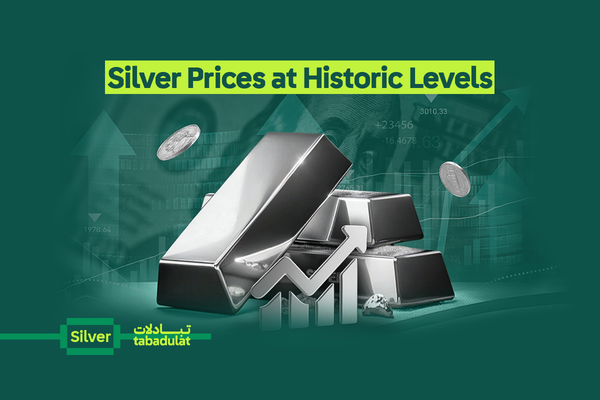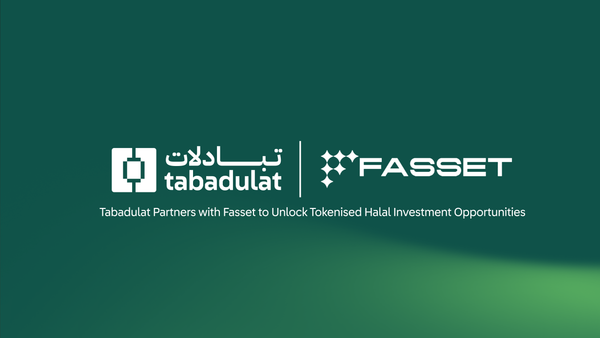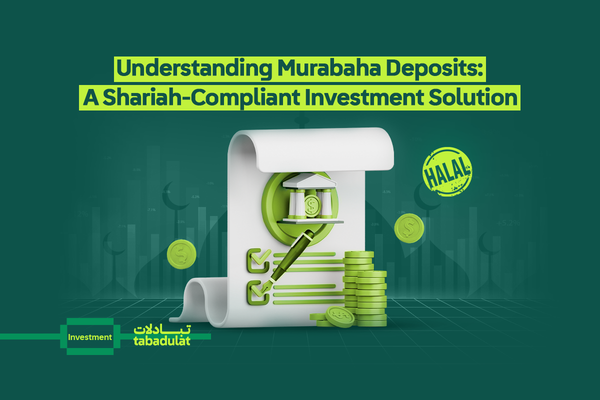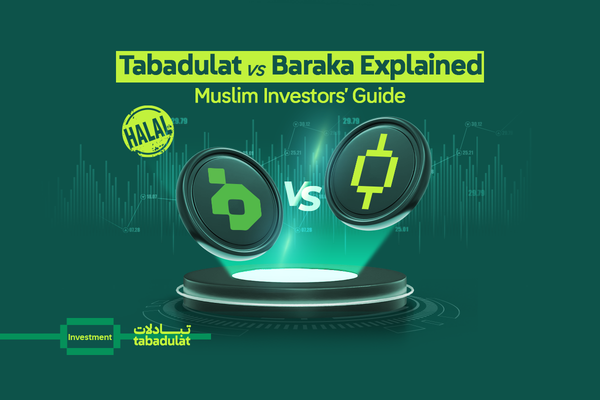What Geopolitical Shifts Mean for Your Halal Portfolio
Geopolitical tensions are shaking oil markets but is your portfolio still Halal? Learn how global events affect Shariah-compliant stocks and why ongoing vigilance is key. Discover how Tabadulat will help Muslim investors stay compliant in volatile markets.
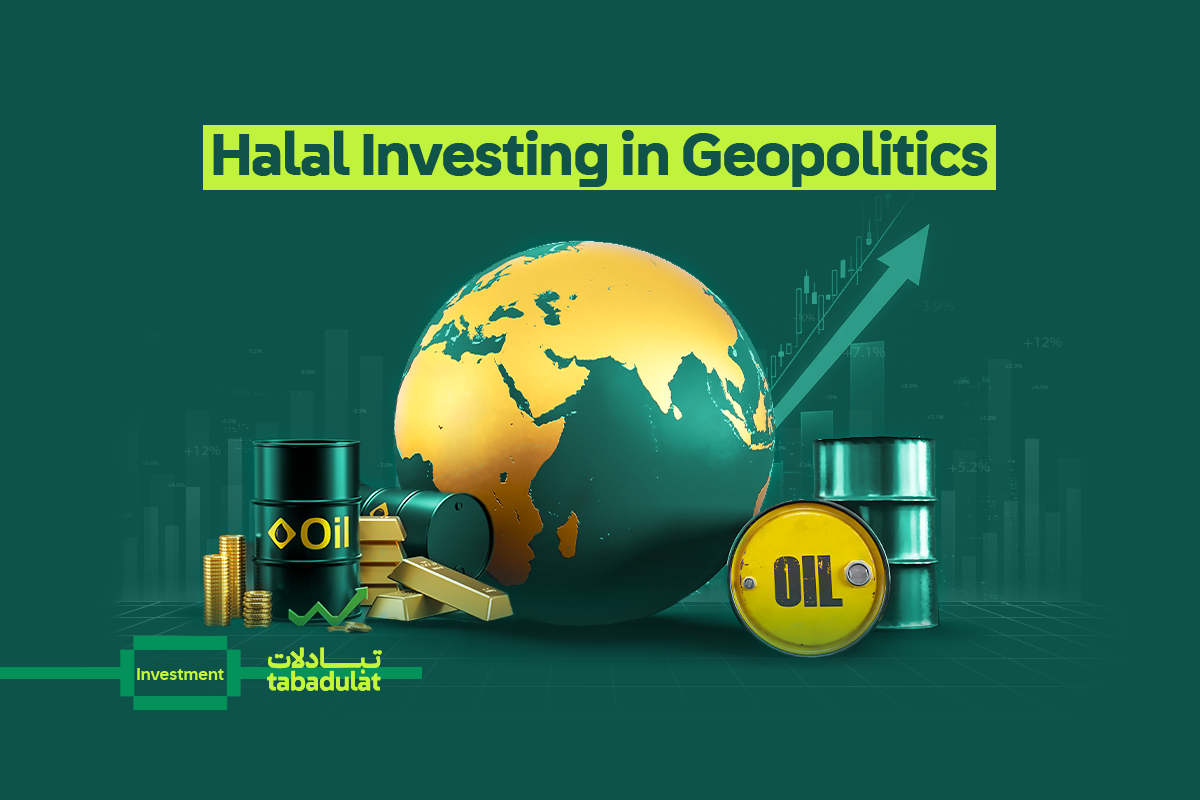
Recent headlines feature news of airstrikes, market shocks and heightening geopolitical escalation in the Middle East. Naturally, all investors want to know how their portfolio is doing. But for Muslim investors, they also need to check if their investments are still Halal.
US strikes on Iranian nuclear facilities are causing jitters in the oil markets. This situation is more than just a temporary event. It highlights the urgent need for sound risk management, Shariah compliance and clear decision-making.
In this article, we will explore how geopolitical events affect Shariah-compliant oil stocks. We’ll also discuss what Muslim investors can do to keep their portfolios Shariah-compliant.
When Oil Markets React, So Should You
Oil remains one of the world’s most traded and sensitive commodities. While energy companies play a key role in the global economy, they are also exposed to geopolitical shocks.
US military action against Iran on 21 June 2025 triggered a temporary spike in oil prices. Brent crude rose to $78.31 per barrel, a 2% jump, before easing slightly. Iran responded with missiles targeting US military bases in Qatar and Iraq.
This raised market anxiety that the conflict could spillover into neighbouring countries. However, oil prices dropped as traders expect less tension. This fall follows the ceasefire announcement between Iran and Israel by US President Donald Trump.
Whilst the future is uncertain, recent events show that oil prices can fluctuate.
Such movements impact more than just oil producers, but also for service firms, shipping companies, storage providers, and refiners. That's why it's important for Muslim investors to look
Halal Investments during uncertain times
At its core, oil is a commodity, which is widely considered Shariah-compliant.
However, not all oil companies align with Islamic finance standards.
Many oil companies use loans involving interest. Or they earn money from non-Halal activities or risky investments. They also trade derivatives to protect against losses or to make a profit.
That's why it's important for Muslim investors to check if the oil firms within their portfolio are Shariah-compliant. To check if a company is Halal to invest in, it is important to screen its Shariah compliance.
To know whether a company is Halal, consider using the Accounting and Auditing Organization for Islamic Financial Institutions (AAOIFI) framework. AAOIFI is the most widely recognised standard in the Islamic finance industry.
As explained in our blog 'AAOIFI Standards Explained: What Makes a Stock Halal?' Halal stock screening involves a two-step process.
The first step is screening the company’s core business. To be considered Halal, the company cannot be involved in impermissible activities.
Oil extraction and refining are generally considered permissible. But it's important to check if the company engages in other areas that could be considered non-compliant.
The second step is to look at the company’s financials. Under the AAOIFI equity screening standard, the company adhere to the following:
- Interest-bearing debt must not exceed 30% of market capitalisation
- Interest-bearing deposits must also stay below 30% of market capitalisation
- Impermissible income must stay under 5% of total income
Furthermore, speculative trading, like derivatives exposure, can raise Shariah compliance red flags.
In times of market turmoil, oil price shocks can cause Halal oil companies to break these limits. This is especially important if share prices fall or debt levels increase during a crisis.
A company's situation can change based on its environment. That's why checking every quarter or twice a year isn't sufficient. It needs to happen regularly.
Muslim investors should do regular Shariah compliance checks based on events, not just quarterly or yearly reviews. Halal Investing demands ongoing vigilance, particularly during tumultuous times.
Red Flags During Geopolitical Shocks
If you are looking at an oil company in your portfolio during uncertain times, watch for key warning signs.
The first would be rising debt levels. Companies usually borrow more to manage market turmoil. This could lead to breaching AAOIFI thresholds.
Having a diversified portfolio is important for Muslim investors. During times of market or geopolitical uncertainty, some oil companies may engage in Haram activities. These could include conventional finance or alcohol sales to cover losses. Speculative behaviour (Gharar) is also common during uncertain periods, including derivatives-based hedging strategies that could compromise Halal status.
Another indicator to watch out for is poor or untimely transparency. When companies give few or late financial updates, it can be harder to tell if they are still Shariah-compliant.
We break down what signs to look out for in our blog “Why a Halal Stock Screener Matters for Halal Investing".
The latest geopolitical shocks are a stark reminder that oil markets and the companies within them are constantly changing. It's important to remember that geopolitical shocks can happen in many regions, not just one. This means that it could impact companies in other sectors.
To succeed in market uncertainty, Muslim investors need a principled approach to risk. Instead of chasing returns amid volatility, Shariah-conscious investors should prioritise stability and long-term value.
This means reverting to key Islamic finance principles like:
- Avoiding speculation
- Steering clear of companies with excessive leverage
- Resisting the urge to day-trade on news-driven swings.
The unfortunate truth is that current platforms do not support Muslim investors. They struggle to navigate markets and spot opportunities while staying true to Islamic finance principles.
As we mentioned in our blog, we believe Muslim investors deserve better. Many providers charge expensive monthly subscriptions and high fees for basic Shariah compliance reports. Muslim investors often use robo-advisors or managed funds. This means they lose control over how they manage their money.
How Tabadulat Supports Halal Investing
We recognise that not every Muslim investor has the time or tools to conduct detailed compliance checks. That’s why Tabadulat is building a platform designed to make Halal investing simple, accessible, and credible.
With our upcoming free Halal Stock Screener, you’ll be able to check if oil stocks and other equities meet AAOIFI’s criteria. You can track compliance in real-time, filter out high-risk companies, and invest with confidence.
Our blogs also provide accessible insights into key topics, including Halal gold investing, Shariah-compliant ETFs, and Halal REITs.


